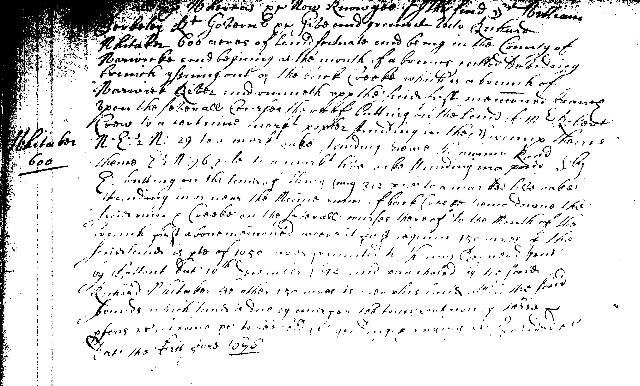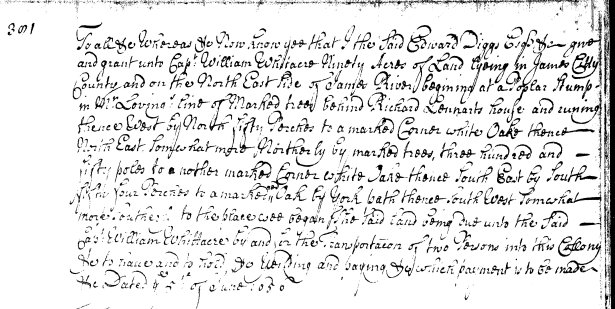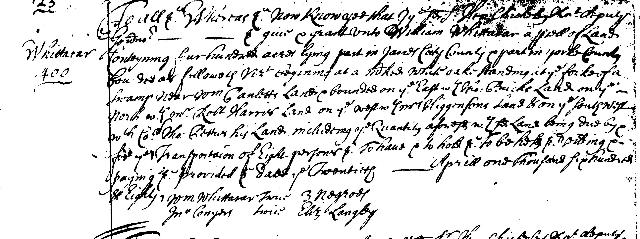|
From 1624-1626
he was Captain and a member of the Virginia House of Burgesses.
In 1626 he was a member of the Colonial Council of Virginia,
when he received a letter from his father-in-law Sir John Bourchier
"ordering him back to England to his wife and child."
He left Virginia for England in 1628.
That child was William
Whitaker, born 1618 in Surry, England. It is uncertain when
William came to Virginia, but he was a Major and a Colonel in
the Virginia Militia, a tobacco planter; and in 1648-56 he was
a member of the Virginia House of Burgesses. In 1656 he was granted
a 90-acre patent on the N.E. side of the James River for transporting
two persons to Virginia. He was a member of the Colonial Council
of Virginia in 1659.
At right: Jamestown, VA, church tower
|
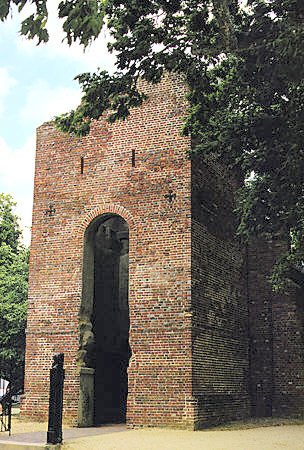 |
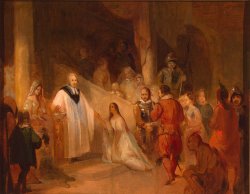 larger
view
larger
view larger
view
larger
view
